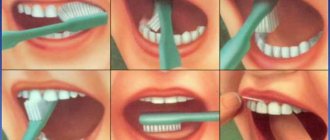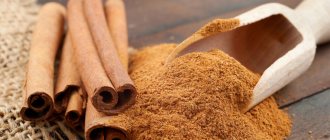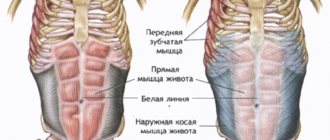How to get rid of unpleasant feelings
There is no magic pill that can help a person get rid of any taste.
Well-thought-out complex therapy is aimed at eliminating the symptom. In the case of pancreatitis and concomitant diseases, diet and taking appropriate medications can help. If the body tries to signal a problem in this way, it is better not to try to drown out the symptom with flavors, but to listen: perhaps the treatment requires correction. Be sure to consult your doctor, do not hush up the problem that causes complications.
The feeling of sweetness in the mouth is a signal indicating a disturbance in carbohydrate metabolism and a decrease in insulin production.
If you have such a symptom, you should immediately contact a therapist and endocrinologist in order to undergo a comprehensive examination and prevent the development of diabetes mellitus, as well as its severe complications.
Elimination of both unpleasant taste and bad breath in pancreatitis should be aimed at eliminating the cause. To correctly influence the symptoms and achieve the desired effect, you cannot do without the results of laboratory tests and instrumental examinations. Taking into account the obtained tests, the doctor prescribes appropriate therapy, the purpose of which is to relieve the inflammatory process in the pancreas.
Medicines will not have the desired effect if their use is not combined with the following rules:
- rejection of bad habits;
- complete rest;
- moderate regular physical activity;
- compliance with nutritional rules for pancreatitis;
- compliance with the prescribed diet during periods of exacerbation of pancreatitis.
In addition, it is recommended to avoid stressful situations and visit a doctor regularly. Sanatorium-resort treatment has an extremely positive effect on the condition of patients and allows them to restore strength and normalize the condition of the body. Overload and an accelerated rhythm of life are prohibited in case of pancreatic diseases.
Doctors identify the most common causes:
- diabetes;
- cholecystitis;
- disturbances in the functioning of the gastrointestinal tract;
- inflammation of the pancreas;
- gastritis;
- liver dysfunction;
- otolaryngological diseases occurring in acute, severe form;
- peptic ulcer;
- liver pathologies.
A feeling of dryness and a bitter taste appear when there is a dysfunction of the salivary glands. Dryness and bitterness in the throat and mouth can occur with infectious diseases affecting the oral cavity and larynx. Such symptoms are characteristic of chronic tonsillitis, adenoiditis, caries.
Psycho-emotional shocks and frequent stressful situations with accompanying pathological changes in nerve fibers can provoke dryness of the mucous membranes.
Even in the absence of pathological factors, dryness and bitterness in the mouth can occur as a result of thirst, impaired drinking, poor nutrition, bad habits, and abuse of certain medications.
Which taste in the mouth is most common with pancreatitis depends on the stage of the disease and other diseases attacking the body.
Medical practice shows that tastes can be very different. Each of them tells specialists what disease, in addition to pancreatic inflammation, they still need to pay attention to.
https://www.youtube.com/watch?v=YFJhfBMOIjc
The only rare thing is a salty taste with pancreatitis. All others may be present and cause discomfort to the patient.
Bitter
Bitterness in the mouth with pancreatitis suggests that, in addition to the pancreas, the gallbladder and bile ducts are affected. According to statistics, about 20% of those who have problems with the functioning of the pancreas simultaneously experience disorders in these organs. Bile, instead of going into the intestines, begins to gradually enter the stomach. This is immediately felt by the taste buds on the tongue. Malfunctioning of the gall bladder is also indicated by:
- pain, heaviness in the right side;
- increased pain after a person has eaten something prohibited by the diet.
Gallstones and pancreatitis often go hand in hand.
Sweet
The appearance of a sweetish taste is a marker of more glucose in the bloodstream than expected. This means that carbohydrate metabolism is disrupted, and, on the contrary, less insulin is supplied than the body requires. If the patient feels such a taste, you need to consult an endocrinologist as quickly as possible. This condition threatens the development of diabetes.
Sour
The sour sensation may be caused by bacteria in the mouth processing glucose and producing lactic acid.
Another cause is reflux. This term means that due to the increased acidity of the stomach, a small amount of its contents enters the esophagus and oral cavity. If this happens, then the person may have gastritis. Thanks to the acid reaction in the esophagus, you can indirectly find out about the presence of this disease and take appropriate measures.
Causes of taste
The feeling of sweetness in the mouth is a signal indicating a disturbance in carbohydrate metabolism and a decrease in insulin production.
If you have such a symptom, you should immediately contact a therapist and endocrinologist in order to undergo a comprehensive examination and prevent the development of diabetes mellitus, as well as its severe complications.
A sour taste caused by bacteria in the mouth indicates the need to visit the dentist as soon as possible, since lactic acid damages tooth enamel, causing tooth decay. If the cause of this phenomenon is different (reflux), then you cannot do without consulting a gastroenterologist, since in this case the gastric contents are refluxed into the oral cavity and esophagus. This symptom is characteristic of gastritis, and if you are not careful about your health, the disease can be complicated by the development of a stomach ulcer.
A bitter taste in the mouth with pancreatitis occurs in 1/5 of patients and indicates concomitant pathology of the gallbladder and biliary tract. The mechanism of the disorder is as follows: bile enters the stomach from the intestines, which should not normally happen. When bile comes into contact with the receptors on the tongue, a bitter taste occurs. Concomitant symptoms of biliary tract diseases are pain and heaviness in the right hypochondrium. There is an increase in such manifestations of the disease with significant violations of the prescribed diet: after eating fatty and salty foods, generously seasoned with spices.
How does the oral cavity react to pancreatitis?
The processes of digesting food originate in the oral cavity; it is here that food products crushed with the help of teeth turn into a kind of lump and mix with saliva.
No less often, patients develop a bitter taste in the mouth with pancreatitis, indicating the development of this disease against the background of progression of cholelithiasis or cholecystitis. In some cases, patients develop an acetone odor from the mouth, indicating the progression of the intoxication process in combination with dehydration and an increase in the concentration of glucose in the blood.
It is not uncommon for patients to complain about the appearance of a bitter odor of bile, which occurs when it is thrown into the cavity of the stomach and esophagus during the development of a chronic form of pancreatic disease, which develops against the background of pathogenic diseases of the gallbladder and bile ducts.
It is also worth noting that patients may experience a metallic taste in combination with heartburn and a feeling of abdominal distension. In this case, there may be pain in the epigastric region, which indicates an acute attack of a chronic pancreatic disease.
Why does the taste appear?
The appearance of taste in pathology is a common symptom. In addition, there are 3 types of flavor.
What taste in the mouth a patient experiences with pancreatitis will be determined by his condition, the type of pathology and various provocateurs.
Often, a bad smell or a certain taste is associated with changes in the functioning of internal organs. It is important to understand that the digestive phenomenon begins in the oral cavity, when food is mixed with saliva and passes into the stomach. Due to this, dryness is the main cause of aftertaste.
Due to the reduction in saliva production when the pancreas becomes inflamed, there is often a feeling of dryness after eating. This indicates a number of factors that together give rise to unpleasant sensations - a dry throat, thirst and a lump.
- Stress, pain shock.
- Excessive synthesis of hormones.
- Lack of sugar, which increases the insulin ratio in the blood.
- Constant vomiting that does not bring relief.
- Poisoning.
- Increased temperature.
- Diarrhea.
- Severe dehydration.
In the chronic type of the disease, dryness develops due to poor nutrition during pancreatitis. Most products cannot be converted due to insufficiency of certain enzymes. Therefore, you need to know what foods you can and cannot eat. A bitter taste may appear due to the following factors:
- a feeling of bitterness during the development of pancreatic disease manifests itself against the background of the development of cholelithiasis;
- reflux of bile due to diseases of the gallbladder and biliary tract;
- the smell of acetone appears when the body is dehydrated, poisoned, or glucose has increased.
Character of taste
In the initial stages of the disease, patients note the appearance of a sweetish taste in the mouth due to pancreatitis. Many people do not attach importance to this phenomenon, but over time this feature begins to irritate. The cause of this symptom is an increased amount of sugar in the blood and lymph, which inevitably affects the concentration of glucose in saliva. Since the body does not synthesize insulin in sufficient quantities, the sugar that enters the blood cannot reach the tissues.
Depending on the patient’s condition and the degree of neglect of the disease and concomitant diseases, the taste in the mouth may be different:
- sweetish – the cause is a high level of glucose in the body’s biological fluids;
- sour - appears when glucose is converted into lactic acid under the influence of bacteria or when gastric contents are thrown into the oral cavity and esophagus;
- bitter is a sign that cholelithiasis has joined pancreatitis.
A reduced level of saliva secretion with the development of inflammation in the pancreatic cavity very often provokes the formation of a feeling of dry mouth with pancreatitis, especially after a meal. The formation of such symptoms is preceded by several of the following factors:
- Against the background of a stressful situation and the formation of a painful shock, it contributes to an increase in the concentration of cortisol and adrenaline (stress hormones), provoking the formation of a feeling of dryness in the oral cavity; people say: “the throat is dry.”
- Lack of insulin, which appears with the progression of the inflammatory process in the cavity of the parenchymal gland, leading to an increase in the concentration of sugar in the blood plasma, provokes the formation of a feeling of thirst and dryness in the oral cavity.
- If a patient is diagnosed with acute pancreatitis, then its characteristic symptomatic manifestation is a high intensity of vomiting with a developing intoxication process and dehydration of the body against the background of an increase in body temperature, which also contributes to a feeling of dryness in the oral cavity.
- The chronic form of pancreatic disease of a parenchymal organ is accompanied by the development of diarrhea, which, with an increase in its intensity, provokes the development of dehydration, a characteristic manifestation of which is also a feeling of dry mouth.
Xerostomia, or dry mouth, can occur not only after eating food, but also a couple of hours after a meal, especially if the patient’s daily diet mainly included fatty and high-calorie foods or lean dishes.
In order to combat dryness, it is necessary to take measures to increase its production, namely:
- drink as much water, tea, infusions and decoctions of medicinal herbs as possible;
- you can chew chewing gum or eat sugar-free candy;
- It is recommended to select only fluoride-containing products as mouth rinses;
- the consumption of anything salty should be kept to a minimum;
- completely eliminate smoking and drinking alcohol;
- carry out the respiratory act only through the nasal cavity, it is not recommended to connect the mouth to breathing, since it is not worth drying the already affected salivary glands;
- if the air in the room is too dry, then use specially designed humidifiers to increase the humidity level;
- There are also pharmaceutical preparations designed as a saliva substitute, but before using them you should first consult your doctor.
You can treat dry mouth through the use of folk remedies, namely, it is recommended to do the following:
- Every 60 minutes, consume ten drops of echinacea alcohol tincture, but not more than 60 days.
- At every meal, season the food with red chili pepper, which contains a component such as capsaicin, which helps activate the salivary glands.
- It is recommended to suck on small pieces of ice.
- Completely exclude crackers, bread, nuts and dried fruits from the diet.
- Regularly lubricate the surface of your lips with hygienic lipstick or balm with a moisturizing effect.
Importance is attached to the nature of the patient’s breath. If substances - decay products - accumulate in the oral cavity, the first to feel the unpleasant stench are people who find themselves in close proximity to the patient.
There are two types of bad breath:
- physiological (related to lack of hygiene (a person did not brush his teeth in the morning) or nutritional (he ate garlic/onions);
- pathological – caused by diseases of internal organs. The case of pancreatitis belongs to the second group. Inflammation of the pancreas in itself rarely causes an unpleasant odor; concomitant diseases manifest this symptom. These include:
- biliary diseases;
- excessive amounts of glucose in the bloodstream.
Having diagnosed the disease, the attending physician has the right to prescribe new medications or procedures, the main goal of which will be to stop the developing disease in the bud. The fact of the occurrence of a disease will say a lot about the patient’s attitude towards his own health.
The nature of the manifestation of unpleasant symptoms will help determine the causes of dryness and bitterness that occur in the oral cavity.
https://www.youtube.com/watch?v=3zTZz-M5SRc
It is recommended to urgently consult a doctor if you have severe dry mouth with the appearance of accompanying clinical symptoms:
- Pain when swallowing liquid with saliva.
- Feeling of burning, itching and dryness of the tongue.
- Constant thirst.
- Increased viscosity of saliva.
- Unpleasant odor from the mouth.
- Voice change.
- Headache.
- Nausea and bouts of vomiting.
- Increased salivation.
- Feverish condition.
- Cough syndrome.
Often, periodic sensations of dryness and bitterness are experienced by people who take sedatives, antihistamines, antibiotics, and painkillers for a long time, constantly and uncontrollably. The formation of bitter saliva is considered a common side effect of drugs for weight loss, cytostatics, and chemotherapy drugs.
Temporary bitterness and dry mouth can accompany a fever, viral infectious processes, recent traumatic injuries and surgical interventions, general intoxication or dehydration.
In such situations, bitterness and dryness go away on their own, without treatment, as the person’s general condition stabilizes.
Sweet taste
Constant sweetness in the mouth, as a rule, does not cause discomfort or anxiety in people. And in vain, since this sign indicates a serious metabolic failure - a violation in the absorption of carbohydrates. If you do not take the necessary measures, then over time it can lead to the development of such a dangerous disease as diabetes.
The fact is that a strong inflammatory process in the pancreas has a significant impact on its functioning. With pancreatitis, the secretion of not only digestive enzymes, but also the hormone insulin, necessary for the absorption of glucose, decreases.
As a result, the patient's blood sugar level begins to rise and penetrate into other physiological fluids - urine, sweat and, of course, saliva. This is what explains the sweet taste in the mouth in patients with pancreatitis.
The sweet taste can be hazardous to human health and cause many oral diseases. So a high sugar content in saliva can provoke the formation of caries, gum inflammation, stomatitis, gingivitis and periodontitis.
To get rid of it, the patient must carefully monitor blood glucose levels and follow a strict low-carbohydrate diet. To do this, you should completely stop eating high-carbohydrate foods, namely sugar, all types of sweets, sweet fruits and baked goods.
When do they arise?
These unpleasant manifestations occur in the evening and at night:
- After eating, especially after eating fatty, fried, smoked, salty foods for dinner, shortly before going to bed.
- As a result of a disorder in the functioning of the endocrine system.
- Due to renal pathologies.
At night, a phenomenon such as xerostomia manifests itself as a result of rhinitis, allergic reactions, leading to impaired respiratory function and drying out of the mucous membrane.
A similar problem is faced by people who snore in their sleep. A person breathes through the mouth, as a result of which unpleasant dryness appears on the lining of the oral cavity.
In the morning, the following reasons can provoke the appearance of dryness and bitterness:
- Drinking alcohol and smoking before bed.
- The use of sleeping pills, sedative medications, tranquilizers that provoke disturbances in the functioning of the salivary glands.
- Problems with nasal breathing.
Dryness and bitterness in the morning, occurring after sleep, in most cases are the result of local irritants.
Possible causes include rhinitis, occurring in acute or chronic form, allergies, disturbances in the functioning of the upper respiratory tract, sinusitis, and sinusitis. Therefore, if a person experiences bitterness, thirst and dry mouth every morning, you should consult a doctor.
If unpleasant symptoms (dryness, bitterness) bother you all the time, then this indicates severe pathologies, especially when the following symptoms are added:
- increased urge to urinate;
- bleeding gums;
- change in taste sensations;
- the appearance of painful bleeding cracks on the lips and corners of the mouth;
- attacks of dizziness;
- tachycardia (rapid heartbeat);
- the formation of a white or yellow coating on the surface of the tongue.
A constant feeling of dry mouth increases the risk of developing candidiasis, stomatitis, and caries.
Dry mouth
Dry mouth with pancreatitis is a very common symptom. It is most often caused by dehydration due to severe vomiting and diarrhea due to inflammation of the pancreas. These dangerous symptoms cause the body to lose a huge amount of fluid, which leads to dry mucous membranes of the mouth and even a feeling of a lump in the throat.
In this case, the patient’s lips may become dry and cracked, and there may be an almost complete absence of saliva. This not only creates serious discomfort, but also interferes with normal eating. After all, saliva helps soften food and its subsequent swallowing.
In addition, saliva plays a vital role in the digestion process, as it starts the first stage of food digestion. With a lack of salivary fluid, a person often experiences problems with the gastrointestinal tract, such as heartburn, heaviness and bloating.
Another cause of dry mouth can be the same elevated blood sugar levels. With hyperglycemia (high levels of glucose in the body), the patient experiences excessive urination, which also often causes severe dehydration.
Taste due to inflammation of the pancreas
The taste in the mouth with pancreatitis can be sweet, sour or bitter. Also, with this pathology, patients often develop a strong foul odor from the mouth, which cannot be eliminated with mouthwash and toothpaste.
After a certain period of time, a sour taste may be added to the sweet taste due to the influence of microorganisms on the elements of glucose, which subsequently, under the influence of enzymatic substances, begins to be converted into lactic acid. Here, the formation of a salty taste in the mouth may occur under certain provoking factors.
The formation of a sour taste can occur against the background of the progression of a reflex disease, in which everything that enters the stomach begins to break down under the influence of acids and is then partially released into the cavity of the esophagus and pharynx.
The manifestation of pain in the pancreas and bitterness in the mouth is simultaneously detected during the course of pancreatic disease with pathological disorders in the cavity of the gallbladder and bile ducts.
Let us take a closer look at the various tastes in the mouth that appear as inflammation of the parenchymal gland progresses.
Bitter taste
The progression of inflammatory processes in the area of a parenchymal organ often, as mentioned above, begins to develop against the background of cholecystitis or gallstone pathology, in which bile, when the bile ducts are blocked, is thrown into the cavity of the pancreas, causing an irritable reaction of its tissue structures.
A sweetish taste in the mouth during the development of pancreatitis occurs against the background of an imbalance in carbohydrate balance and a simultaneous stop in the production of insulin, which ensures the processing of glucose. Insufficient concentration of insulin leads to the accumulation of sugar in the lymphatic fluid, through which it enters the oral cavity.
The sweet nature of the taste gives way over time to a sour aftertaste. This change occurs because the microflora of the mouth contains a certain set of microorganisms that have the ability to ferment glucose elements with lactic acid molecules.
Don't forget about daily oral hygiene. After all, if you do not brush your teeth constantly, then a favorable environment is formed in your mouth for the growth and development of pathogenic microorganisms, which begin to affect the enamel on the teeth and provoke the development of caries, plaque and tartar. The resulting tartar has a pathological effect on the health of the gums, loosening them and increasing the intensity of development of microorganisms that affect all components of the oral cavity and pharynx, including the tonsils and salivary glands. The pathogenic effect of bacteria on the salivary glands leads to changes in saliva, which becomes salty.
A sour taste can also be added to a slight sweet aftertaste when the microflora in the intestinal cavity is disrupted. In such cases, eating even salted foods can provoke the feeling that everything is unsalted and tasteless.
Bitter taste
The state of the patient's body can be determined by the nature of the sensations in the mouth. What is the taste in the mouth with pancreatitis?
1. Bitter - appears with the development of cholecystitis or cholelithiasis. In this case, the bile ducts are blocked, and all the accumulated bile enters the pancreas, resulting in tissue irritation. This causes bitterness in the mouth and a coating of bile appears on the tongue.
With this taste, diarrhea often occurs, and it can lead to dehydration of the body; these phenomena occur during exacerbation of the chronic form of the disease.
2. Sweet - indicates an imbalance in carbohydrate balance and a stop in the production of insulin, which is responsible for the processing of glucose. If there is not enough insulin in the body, then this leads to the accumulation of sugar, which ends up in the oral cavity.
3. Sweet-sour - over time it turns into a sourish phenomenon. It occurs when the oral cavity contains a set of microorganisms that have the ability to combine glucose with lactic acid.
Do not forget about dry mouth with pancreatitis. It is caused by dehydration through vomiting and diarrhea. This is dangerous for the body, because there is a violation of the mucous membranes and a feeling of a lump in the mouth. This can cause cracks on the lips and cause severe discomfort when eating, because saliva helps soften food and normal swallowing and digestion of food.
What's happening?
The taste typical of pancreatitis is not similar to that of other diseases. Initially it seems sweet due to glucose released from the blood and lymph, saturated with sugars. The body produces little insulin, and not all sugar is broken down. At first, the sweet taste of saliva does not cause much concern, but then it begins to irritate.
Why does my mouth taste sweet?
A sweetish taste is an extremely common symptom accompanying pancreatitis. The causes are rarely associated with third-party diseases and show that processes typical of inflammation of the pancreas occur in the body:
- carbohydrate imbalance;
- problems with insulin production;
- excessive sugar in the lymph.
Having established the cause of the taste, it is important to quickly eliminate the phenomenon and take measures to treat the disease.
Sweetish-sour taste
After a sweet aftertaste there is often a sour aftertaste. The microflora of the oral cavity contains microorganisms that can ferment glucose along with lactic acid. If there is an excess of acid in the mouth, dental problems are possible.
Common reasons why sweet foods have a sour taste include:
- impaired production of enzymes (substances necessary for digestion);
- disturbance of intestinal microflora.
Mixed with the sour taste are symptoms typical of pancreatitis, the source of which is a lack of enzymes.
If the disorder is associated with enzymes, the doctor prescribes special medications that restore the balance of substances in the body. This is necessary for normal digestion, which is involuntarily disrupted during pancreatitis.
Inflammation of the pancreas
Reasons why tastes occur
The oral cavity, like the rest of the body, does not remain untouched with the development of pancreatitis. The mouth serves as the starting point for the digestive process: the teeth crush pieces of food for better digestion, then the piece is absorbed along with saliva. When a person experiences inflammation of the pancreas, the following processes occur:
- stress associated with constant pain and general condition;
- elevated temperature;
- decreased blood sugar levels;
- constant vomiting (mainly during acute attacks);
- diarrhea;
- dehydration;
- intoxication of the body or a separate organ.
There are known forms of pancreatitis that affect a separate part of the pancreas, but the endocrine part (which produces hormones) can become inflamed in any form. Due to the weakening of the general condition of the organ, it is difficult for hormones to continue working, and the chemical processes of production and formation of substances are disrupted.
Bitterness in the mouth is not the only distress of the patient. Patients often complain of dryness and a decrease in the amount of saliva produced. Due to a lack of insulin and sugar in the blood, a person constantly feels thirsty.
Bad breath due to pancreatitis is a common and unpleasant phenomenon. This is how the consequences of pancreatitis manifest themselves; other causes of foul odor are also known. You should report such sensations to your doctor.
What diseases are indicated by different sensations in the mouth?
Dryness is explained by a considerable number of reasons: lack of sugar in the blood, stress caused by an excess of hormones. The breath may smell of acetone - this means that the patient is close to complete dehydration, high intoxication of the body, or the level of glucose in the blood is elevated.
A bitter taste in the mouth with pancreatitis most certainly means cholelithiasis. 20% of patients with pancreatitis experience the formation of gallstones. Periodically, bile is thrown into the oral cavity. The presence of gall bladders can be determined by special diagnostic tools: ultrasound and x-rays.
Ultrasound of the gallbladder
Depending on the nature of the sensations experienced by the patient during the treatment of pancreatitis, the doctor prescribes additional tests, procedures or medications.
Diagnostics
Diagnosis of dryness and bitterness in the oral cavity begins with a visit to the therapist, a general examination of the patient, studying the clinical picture, and analyzing the results of the medical history. To clarify the diagnosis and determine the stage of the disease, the patient is given referrals to the following specialized specialists:
- gastroenterologist;
- otolaryngologist;
- allergist;
- endocrinologist;
- dentist.
- blood analysis;
- Analysis of urine;
- ultrasonography;
- computed tomography or magnetic resonance imaging.
Is it possible to get rid of the taste?
It will be possible to get rid of the sweet taste only by radically adjusting the daily diet and following a special diet that excludes all spicy and fatty foods, as well as foods with a salty taste and alcoholic drinks. It is also necessary to constantly monitor the concentration of sugar in the blood in order to promptly prevent the likelihood of developing diabetes mellitus.
Eliminate stressful situations from your life as much as possible and learn to resist them. And regular treatment in sanatorium-resort areas will help prevent exacerbation of pancreatic disease and the occurrence of various tastes and all accompanying symptoms.
Bibliography
- Maksimov, V. A. Clinical symptoms of acute and chronic pancreatitis. Directory of General Practitioners. 2010 No. 3 pp. 26–28.
- Strokova O.A. The state of intestinal digestion in patients with chronic pancreatitis. Abstract of the dissertation. Ulyanovsk 2009
- Ed. V.T. Ivashkina, T.L. Lapina. Gastroenterology: national guidelines. – M.: GEOTAR-Media, 2008.
- Osipenko, M. F. Clinical features of various types of excretory pancreatic insufficiency. Therapeutic archive. 2009 No. 2 pp. 62–65.
Bibliography
- Maksimov, V. A. Clinical symptoms of acute and chronic pancreatitis. Directory of General Practitioners. 2010 No. 3 pp. 26–28.
- Strokova O.A. The state of intestinal digestion in patients with chronic pancreatitis. Abstract of the dissertation. Ulyanovsk 2009
- Ed. V.T. Ivashkina, T.L. Lapina. Gastroenterology: national guidelines. – M.: GEOTAR-Media, 2008.
- Osipenko, M. F. Clinical features of various types of excretory pancreatic insufficiency. Therapeutic archive. 2009 No. 2 pp. 62–65.
The first thing you need to do when any taste appears in your mouth is to contact your doctor, and he will prescribe an examination to find out the full picture of the disease. After the examination, the doctor will prescribe therapy that will eliminate the inflammatory process of the pancreas. Also, to get rid of an unpleasant taste and other symptoms of the disease, it is necessary to take an integrated approach.
Medications play a big role in the treatment of the disease, but do not forget the correct lifestyle and some rules, they are as follows:
- During an exacerbation, the main thing is to follow a strict diet;
- It is necessary to ensure rational and balanced nutrition;
- Completely eliminate alcohol and smoking;
- Have a good rest and lead an active lifestyle;
- Stay under constant medical supervision and don’t worry about trifles, because this could lead to seizures.
If the taste in the mouth does not go away for a long time, then the doctor will prescribe another therapy that is suitable in a particular case. It is also worth monitoring your sugar levels, because diabetes mellitus can occur with pancreatitis, so if a sweet taste appears, it is urgent to undergo an examination.
How to solve the aftertaste problem?
As mentioned earlier, the problem can be solved without much difficulty, but only after contacting a qualified specialist. The sweet taste, if you apply at this stage, will go away immediately after you start eating properly and control your condition.
It is worth noting that, unfortunately, this does not help in all situations, because the problem can be difficult to solve. To correct the taste in such a situation, you should definitely get tested. In case of serious problems, it will be important to undergo a course of treatment, and if the specialist does not find anything serious, then it is important to provide you with complete peace of mind, also try to consume all foods in moderation, and, unfortunately, you will have to give up some altogether.
https://youtube.com/watch?v=3zTZz-M5SRc
Be sure to drink more water and do not challenge your doctor's decisions, as he knows better. The fact is that the exact problem can only be determined after reviewing the analyses.
One of the signs of inflammation of the pancreas is an unpleasant taste in the mouth. Almost all patients diagnosed with acute and chronic pancreatitis complain about this symptom. Over time, it can change noticeably, which indicates an improvement or deterioration in the patient’s condition, as well as the addition of concomitant diseases.
Thus, the taste in the mouth with pancreatitis helps to monitor the patient’s condition, identify the degree of damage to the pancreas, and even diagnose liver and gallbladder diseases. In addition, a strong taste in the mouth in people with a chronic form of the disease is a clear signal of an impending exacerbation.
Therefore, all people suffering from pancreatitis should know what taste in the mouth occurs with this disease, what it means and how you can get rid of it. It would also be useful to know why inflammation of the pancreas causes severe dry mouth and what effect it has on freshness of breath.
Treatment
Because Bitterness and dry mouth are a symptom that can accompany various diseases; doctors develop an individual course of treatment for the patient, aimed at combating the root causes, based on the results of a preliminary examination.
Following medical recommendations will also help get rid of the bitter taste and dryness:
- Adequate fluid intake throughout the day (under normal drinking conditions, an adult should drink at least 2 liters of clean water).
- Proper, balanced nutrition.
- Compliance with the rules of oral hygiene.
Because Often the cause of dryness is over-dry indoor air; it is important to monitor the microclimate and use special humidifiers.
Diet therapy plays an important role in the treatment of dry and bitter mouth. Patients are advised to include porridge, vegetables and fresh fruits, jelly, flaxseed and herbal infusions in their daily diet.
It is necessary to avoid fried, salty, smoked foods, alcoholic and carbonated drinks, especially in the evening.
It is recommended to use hot pepper as a spice, which activates and stimulates the salivary glands. The presence of sweets and chocolate in the diet should be kept to a minimum.
Taking medications
The medications prescribed by doctors depend on the disease that caused the bitterness and dry mouth. In rare cases, special medications are prescribed that act as saliva substitutes.
The following homeopathic medicines provide a good therapeutic effect:
- Berberis-Homaccord - eliminates dry mucous membranes and an unpleasant bitter taste after eating.
- Sabina - helps cope with dryness, bitterness and bad breath.
- Solidago Compositum C is effective for dryness and bitterness that occurs at night and after waking up.
Folk remedies
There are several effective traditional medicine recipes that allow you to normalize the functioning of the salivary glands and get rid of the unpleasant feeling of dry mucous membranes and bitter taste:
- Apple cider vinegar - to achieve a therapeutic effect, it is enough to drink 1 tbsp of this remedy. l. in the morning after waking up.
- Viburnum with honey - copes well with dry mouth. To prepare the medicine, combine honey, aloe juice and ground viburnum berries in equal proportions. The resulting mixture is taken on an empty stomach, 1 tbsp. l. 1-2 times a day.
- Birch bud ashes are an effective and safe remedy, even for children and expectant mothers. Birch buds are burned, and the ashes are taken in 0.5 tsp, after diluting them in warm milk.
Sour taste
A sour taste in the mouth of a patient with pancreatitis can also be a consequence of elevated blood sugar levels. The fact is that a high concentration of glucose in the salivary fluid creates a favorable environment for the proliferation of bacteria, which during their life activities produce large amounts of lactic acid.
It is responsible for the sour taste in the mouth and for many dental problems in the patient. Lactic acid eats away tooth enamel, making it thin and vulnerable, which is the main cause of tooth decay. A slight damage to the tooth is enough for a black spot of caries to appear in this place.
Another cause of sour taste in the mouth is indigestion. Everyone knows that one of the functions of the pancreas is the secretion of digestive enzymes necessary for the normal breakdown and absorption of food.
With pancreatitis, the work of the organ almost completely stops, which negatively affects the digestion process. Due to a lack of enzymes, food is not digested normally, as a result of which the patient suffers from heartburn and increased acidity.
This disruption of the gastrointestinal tract often leads to the release of gastric juice into the esophagus, which may cause the patient to have a sour taste in the mouth. In addition, increased acidity with pancreatitis often indicates the development of such a common concomitant disease as gastritis in the patient.
To combat digestive disorders in pancreatitis and normalize the functions of the gastrointestinal tract, it is recommended to use special medications.
Today, the most powerful therapeutic effect can be achieved with a drug such as Hepatomax, which has many positive reviews.
Features in women
In women, a feeling of dryness and bitterness in the mouth may be due to changes in hormonal levels.
Many women experience similar symptoms during menstruation, menopause, while expecting a baby, and while breastfeeding.
During pregnancy
Most women in the second and third trimester of pregnancy experience dry mucous membranes in the mouth and a bitter taste appears.
This is due to the pressure of the fetus and the enlarging uterus on the gallbladder and stomach, which provokes the appearance of heartburn and the reflux of bile into the esophagus. Unpleasant symptoms go away on their own after the baby is born.
Bitter taste
Many patients are interested in the question: can there be bitterness in the mouth with pancreatitis? In fact, a bitter taste in the mouth due to inflammation of the pancreas is a fairly common phenomenon and is associated with diseases of the gallbladder.
As doctors note, almost 40% of cases of pancreatitis develop against the background of cholelithiasis. In this case, pancreatitis is a concomitant disease with inflammation of the gallbladder - cholecystitis, which is characterized by a violation of the outflow of bile.
In this case, the patient's mouth may taste bitter due to the constant release of bile into the esophagus or even vomiting bile. In addition, with pancreatitis or cholecystitis, the patient may experience a pronounced metallic taste, which is also often a harbinger of type 1 diabetes.
Severe bitterness in pancreatitis is an alarming symptom and requires immediate diagnosis of the gallbladder for the presence of cholelithiasis.
If the diagnosis is confirmed, then the patient will need to undergo the necessary course of treatment for both pancreatitis and cholecystitis.
Prevention
Troubles such as dryness and bitterness in the mouth can be avoided by following the following preventive recommendations:
- Limit the consumption of strong tea and coffee drinks.
- Give the body feasible physical activity.
- Do not take a horizontal position immediately after eating food.
- Include as many foods rich in plant fiber in your diet as possible.
- Eat food in small portions.
- Symptoms and treatment of pancreatitis in men
- What does a sweet taste in the mouth indicate?
- Can diarrhea occur with pancreatitis?
- When does Voskresensky's symptom occur in pancreatitis?
This site uses Akismet to reduce spam. Find out how your comment data is processed.
Taste in the mouth due to pancreatitis quite often becomes an unpleasant reality for those who suffer from this serious disease. If a taste appears, no matter what it is, a visit to the doctor cannot be postponed. Lack of qualified assistance can lead to exacerbation of pancreatitis and even the development of diabetes. It will not be possible to cure the taste itself, since close medical and medicinal attention to the disease that provoked it is necessary.
Causes of bad breath
One of the most unpleasant symptoms that makes not only the patient suffer, but also those around him is bad breath. A “bad” aroma limits a person’s communication with loved ones, and in some cases contributes to the emergence of complexes. At the same time, we are not talking about the fact that after a hearty lunch with garlic, a corresponding aroma appears, which disappears over time. We will talk about a disease called halitosis, which affects people all over the world.
What is halitosis?
The foul odor that accompanies a person even if all the rules of oral hygiene are observed is halitosis.
In most cases, the patient does not feel it, and those around him are afraid of offending him and do not remind him about it again, trying to reduce communication to a minimum. But you can still identify the smell yourself.
To do this, you need to test with a regular teaspoon. Using it, you need to carefully “scrape” the plaque off your tongue, starting from the base to the tip. A substance will remain on its surface that has an odor: this is how others feel about you.
Getting rid of such an aroma using ordinary hygiene products is very problematic due to the fact that the reasons may lie inside the body. And if you do not regularly consume foods that cause discomfort, or do not suffer from bad habits, you need to carefully examine your health.
How to sense a problem?
To get rid of a disease that is unpleasant in every sense, you must first check what is happening in the oral cavity. Improper and irregular hygiene contributes to the growth of bacteria, the decomposition of food debris, the occurrence of caries, gum disease, plaque and stones, and as a result, putrid breath. If we add smoking and regular alcohol consumption to this, then the occurrence of an unpleasant aroma is quite understandable.
The causes of bad breath may also lie in the respiratory tract. Inflammation in the nasopharynx, bronchi, and lungs is always combined with tissue destruction. Therefore, when exhaling air from the mouth, breath with a putrid tinge escapes.
In most cases, bad breath is a symptom of digestive diseases. Most often these are peptic ulcers of the stomach, bile ducts, and pancreas. In addition to the unpleasant odor, in this case, a coating on the tongue and a constant taste of bitterness may appear. This occurs because the stomach or other gastrointestinal organs accumulate toxins due to the ongoing inflammatory process. They exit, including through the lungs.
In addition, it is worth paying attention to what smell is released:
- Acetone – development of diabetes mellitus;
- Hydrogen sulfide is a sign of gastritis;
- Rot – inflammation of the tonsils.
Only a qualified specialist can diagnose the disease and prescribe treatment, especially since an unpleasant odor can appear for completely different reasons.
Who to contact
The first thing you should do is go to the dentist. He will determine if there are any oral diseases that are contributing to the odor. After properly selected treatment, such an unpleasant symptom will certainly disappear. In addition, a specialist will help you choose individual oral hygiene to prevent relapse in the future. If after consulting a dentist the smell does not disappear, then you need to visit a therapist. This will eliminate problems with respiratory tract diseases and stop inflammatory processes with the help of a course of antibiotics.
Another specialist you can contact immediately is a gastroenterologist. In this case, it is better to choose a doctor who has the opportunity to conduct a thorough examination using modern equipment: stomach problems can only be identified through diagnostics. Based on the results obtained and the patient’s survey, the doctor will prescribe treatment. Basically, this means taking medications and thoughtful nutrition.
Immediate measures
You don’t always have time to go to the doctors, and bad breath continues to bother you.
Therefore, you can take measures that will help only partially cope with this problem:
- The main treatment is perfect oral hygiene. When brushing, special attention should be paid not only to the teeth, but also to the tongue - this is where the largest number of bacteria accumulate. Herbal infusions for mouth rinsing can be used as a supplement.
- One of the most important points of treatment is nutritional adjustments. The simplest option is to eat less meat products, which carry the most pathogenic bacteria. Raw vegetables and fruits, boiled cereals and herbal teas should have an advantage in the diet. This diet can, if not get rid of halitosis, then reduce its manifestations to a minimum.
- Melt water is useful for freeing the gastrointestinal tract from toxins. To prepare it, you need to take water purified through a filter, pour it into a container and place it in the freezer. After some time, an ice crust will appear at the top, which must be removed from the top part and walls of the container - this is an accumulation of deuterium ice, which is completely unhealthy for the body. The remaining liquid is completely frozen and then defrosted naturally (thawing) for consumption.
- If the problem comes from the stomach, then salt water will help. For 5 days you need to drink a spoonful of solution (0.5 water + 1 tbsp salt) after waking up in the morning. To prevent it from irritating the mucous membranes, after a short period of time you need to drink or eat any dairy product. This method will cleanse the walls of the gastrointestinal tract, but it is completely contraindicated for people with gastritis and ulcers.
In any case, halitosis is a serious disease, the causes of which can be very different: from a small carious hole in a tooth to gastritis. Therefore, you should not waste your time visiting specialists: effective treatment is many times better than momentary folk half-measures.
Author: Yulia Kholodok, especially for the site Moizhivot.ru
Gastroenterologists in your city
Select city:
moizhivot.ru
How pancreatitis affects oral sensations
When the disease first makes itself felt, a person notices the appearance of a sweetish taste in the mouth. The reason is a lack of insulin in the body, which leads to an increase in glucose levels in the blood and lymph. In addition to the sweetish taste, there is always a sour taste. This is because microbes in the mouth begin to break down sugar, producing lactic acid. It causes a sour taste.
In addition, the answer to the question whether there can be bitterness in the mouth with this disease is also positive. If, in addition to the pancreas, the gallbladder is damaged, then such a taste signals the need to pay more attention to your health.
Pancreatitis and taste in the mouth
The main symptoms of inflammation of the pancreas are acute pain on the right side of the abdomen, severe vomiting and diarrhea. However, many patients with pancreatitis notice a foreign taste in their mouth, which persists throughout the illness.
It is important to emphasize that the unpleasant taste of pancreatitis cannot be eliminated with toothpaste, chewing gum or mouth freshener spray. This is explained by the fact that the causes of this phenomenon lie in severe pathology of the pancreas, which requires qualified treatment.
Moreover, in two different patients with pancreatitis, the taste in the mouth may be different and largely depends on the development of the disease and the cause of its occurrence. So, with inflammation of the pancreas, the patient may feel the following foreign tastes in the mouth:
In addition, the patient may suffer from severe dry mouth, lack of saliva, and an acetone odor from the mouth.
Other symptoms
In addition to an unpleasant taste in the mouth, pancreatitis is characterized by other, not very pleasant symptoms. A person whose pancreas is working at half capacity often feels dry mouth and thirst. The reason is an insufficient amount of saliva produced and increased sugar levels. This also causes a burning sensation in the mouth.
There are several other factors that lead to dry mouth:
- When a person is in pain, adrenaline and cortisol are released. To process them, you need a lot of saliva, but there is not enough of it.
- When the disease worsens, severe vomiting is always observed, which leads to general dehydration of the body.
Dryness and burning indicate diseases of organs associated with proper metabolism, including the pancreas. She reminds of her unsatisfactory condition with the smell of acetone.
In chronic pancreatitis, the smell is very indicative. In addition to those mentioned, a putrid odor may be felt. Its appearance indicates tooth decay and the appearance of caries.
The coating on the tongue requires special attention. In chronic pancreatitis, it will be brownish-white or white, and the tongue itself will be dry. If there is a shade of yellow, it means there is a problem with the liver, gall bladder and bile ducts.
When the smell comes in
In addition to feeling different kinds of taste in the mouth, patients suffering from acute and chronic pancreatitis are bothered by bad breath and dryness of the mucous membranes of the oral cavity. The pancreas is no longer able to produce the required amount of insulin, which is the main cause of dry mouth and thirst. In addition, dehydration of the body, which develops as a result of a tendency to diarrhea during chronic inflammation of the pancreas, is also the cause of insufficient hydration of the mucous membranes.
Bad breath itself is rarely a consequence of pancreatitis. Only when the blood sugar level is high, others may notice that the patient smells of acetone when talking. If there is a pathology of the biliary tract, the patient may have a specific smell of bile in the mouth, which has a bitterish tint. When tooth decay begins under the influence of lactic acid, the patient may be tormented by a putrid odor due to the onset of tooth decay. This causes a lot of inconvenience when communicating with others.
What can be done
Trying to get rid of tastes, burning, dryness without curing the underlying diseases is pointless. A thorough diagnosis will reveal the underlying disease and related ones. And following the instructions of a gastroenterologist, dentist, or endocrinologist will help you avoid diabetes.
It is necessary to cure teeth without allowing them to be lost. Low levels of insulin in the blood contribute to the development of caries, so patients need more than just a dentist. Comprehensive treatment from a whole team of doctors is required. For example, a diet for pancreatitis is a necessity both during remission and during exacerbations. In addition, you need to follow a number of tips aimed at generally strengthening the body:
- give up alcohol and smoking;
- eat well, rest;
- regularly receive moderate physical activity;
- tidy up the nervous system;
- visit the doctor on time;
- If possible, undergo regular spa treatment.
Most of the measures are quite feasible and do not require extra effort or significant material investments.
Any disease of the digestive system may cause an unpleasant taste in the mouth. The tongue is the organ responsible for taste; based on its condition and appearance, a diagnosis of an existing disease can be made. The taste in the mouth with pancreatitis is unpleasant and experts cannot give clear recommendations to help cope with it.
The taste in a patient’s mouth can change over time, and this will depend on the nature of the disease. It helps to monitor the patient’s condition and identify the extent of damage to the pancreas. A strong taste in the mouth will indicate an exacerbation of a chronic disease; it is necessary to monitor and control this phenomenon.
Getting rid of unpleasant odor and taste
To eliminate the unpleasant taste and odor from the mouth during pancreatitis, get rid of the cause that caused these manifestations. Thanks to diagnosis, the main and adjacent diseases are identified.
By following the instructions of a gastroenterologist, nutritionist, or dentist, the appearance of diabetic pathology is avoided.
- Quitting alcohol and smoking.
- Good nutrition, rest.
- Regularly receiving moderate physical activity.
- Go to the doctor in a timely manner.
- Adjusting the nervous system.
Pancreatitis is a dangerous disease from a medical point of view and tiresome in everyday life. The person is prohibited from eating their favorite foods, a diet is prescribed, and the patient feels unwell. A constant bitter taste appears in the oral cavity, and doctors are unable to give clear recommendations to get rid of the unpleasant taste.











